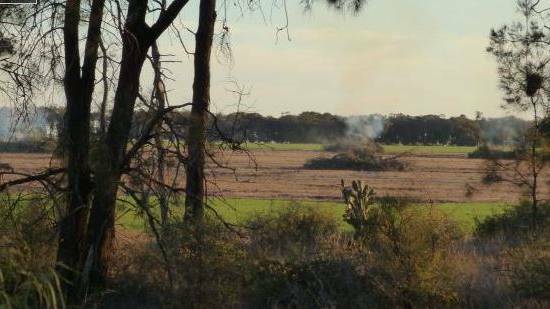
A FARMER who illegally cleared more than 100 hectares of native vegetation, causing “a high level of environmental harm”, has lost an appeal against a $315,000 fine.
Subscribe now for unlimited access.
or signup to continue reading
Grant Wesley Turnbull had his appeal against the sentence dismissed in the NSW Court of Criminal Appeal, despite arguing it was manifestly excessive and not comparable to a similar fine imposed on another family member, Cory Ian Turnbull.
Grant Turnbull, the son of convicted murderer Ian Robert Turnbull, purchased the 1533-hectare property, Colarado, at Croppa Creek, near Moree in 2012 from his father.
It had primarily been used as a grazing property, but the court heard it was his intention “to clear more of the land and use it for cropping”.
In his judgment, Justice Anthony Payne said Grant Turnbull’s father, prior to the purchase settlement, had cleared native vegetation, and was prosecuted and convicted by the Chief Executive of the Office of Environment and Heritage.
In his assessment of the objective gravity of the offence, the primary judge concluded that a high level of environmental harm was caused.
- Justice Anthony Payne
In the NSW Land and Environment Court (LEC) in 2015, Grant Turnbull pleaded guilty to a charge of clearing native vegetation without appropriate authority between June 2012 and January 2013.
He contested several aspects of the prosecution case with a factual dispute in 2017.
The hearing also proceeded jointly with a similar charge against Cory Turnbull, who pleaded guilty but argued against some of the facts against him.
Grant Turnbull was found by the judge to have cleared 103.6 hectares, which included native ground cover and more than 1000 trees and shrubs.
READ ALSO:
“It included native vegetation that was habitat for threatened native fauna such as koalas and species of birds,” Justice Payne said.
“In his assessment of the objective gravity of the offence, the primary judge concluded that a high level of environmental harm was caused.”
He was given a 12.5 per cent discount, fined $315,000 and ordered to pay the prosecution’s costs.
“The primary judge observed that the environmental harm was irremediable, and that the land had been used by the appellant for growing crops since 2013,” Justice Payne said.
The appellant has no intention of restoring the lost vegetation or offering any compensation by way, for example, of creation of biodiversity on other land.
- Justice Anthony Payne
“The appellant has no intention of restoring the lost vegetation or offering any compensation by way, for example, of creation of biodiversity on other land.”
Justice Payne said the judge also “noted that the evidence established that the appellant was well aware of the illegality of his conduct, and had, indeed, promised environmental officers to cease clearing; and that his conduct was deliberate and premeditated and that he foresaw the risk of the harm that in fact eventuated.”
He said there was nothing presented “that persuades me that the sentence imposed is out of step” and dismissed the appeal.
Cory Turnbull, who Justice Payne found was not a co-offender, was fined $393,750 in the LEC and also ordered to pay costs.


